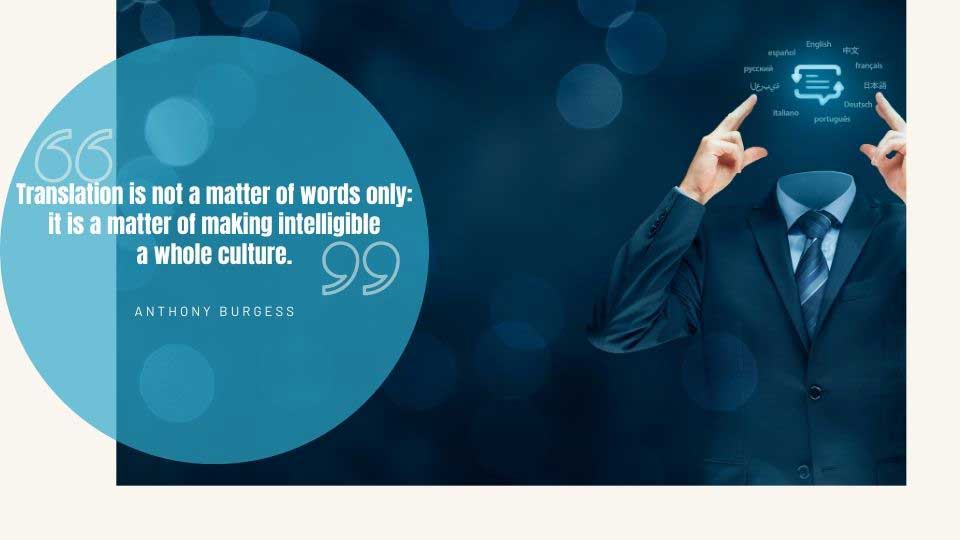
Challenges in translating for the advertising industry



Advertising is a world of compelling imagery and deftly wielded wordplay, and writing captivating copy for an advertisement is probably one of the hardest things to do for a copywriter. Every syllable and word has the expectations of an entire organisation or brand resting on its shoulders, and nothing but the best will do. Imagine then, how challenging the task of translating ad copy into another language must be – and is, for so many advertising executives around the world.
The Birth of Ad Copy Translation

Until cross-border commerce emerged as the mainstay of the business world, things were rolling along just as fine and dandy as you please. But when man’s travel fever finally became stronger than his urge to be safe and sound at home, the inevitable happened: one day, he travelled so far that the people he met were all speaking a strange tongue. Naturally, as the world’s first ‘international trader’, his survival depended on his ability to communicate; so, he picked up bits and pieces of the new language and gathered enough to make his first bilingual trader’s sign, which probably said something like: ‘Fine Mammoth Furs – Make Your Wife a Queen’; and underneath, its local equivalent – or so he assumed: ‘Pieles de Mamut Finas – Hacer Su Esposa Mi Reina’
That was the start of the first cross-border quarrel because, unfortunately, his primitive translation skills made his sign read: ‘Fine Mammoth Furs – Make Your Wife My Queen’!
That single event gave rise to the entire translation industry – in a hurry. Don’t Google that because we just made it up; but the point is: mistranslations in advertising are a very real problem – and always have been. Consider these examples if you don’t believe us:
- When Swedish vacuum cleaner manufacturer Electrolux began its advertising campaigns in the United Kingdom, they may have been successful with their tagline which read: ‘Nothing sucks like an Electrolux!’ However, considering the slang meaning in the English used on the other side of the pond, many Americans consider this a blunder.
- Parker Pens really put the fear of God into young women in Mexico with their reassuring line: ‘It won’t leak in your pocket and make you pregnant.’ A pen is known to do that?? They had unwittingly used the word ’embarazar’ thinking it was the Spanish equivalent of ’embarrass.’
These are just two examples from the house of advertising blunders; and what a big house it is!
But that’s just the surface of the problem; a little care and attention to detail could easily have helped avoid those situations. The real challenge is in translating culturally or ethnically unique concepts into another language while retaining the same emotion and impact. There’s the clue to the puzzle right there – it isn’t always about meaning; sometimes, you have to sacrifice ‘literality’ to achieve accuracy. This is what professional translators constantly deal with when they’re working in the advertising industry.
Let’s look at some of the most challenging components of ad copy translation:
Mottos
Mottos can sometimes be very cultural in nature, so how does one successfully translate them into another language? The Monarchist League of Canada has chosen the motto ‘Fidelitate Coniuncti’, which means ‘Loyalty Blinds Us.’ But try translating that into Arabic, for instance, and you get ‘Loyalty to Blind Us!’ The problem is clear – literality (there’s that word again) is not the way to go.
Wordplay
This is probably even more challenging than mottos (who are we but mere mottos?) because the effectiveness of wordplay often depends on convolutedly derived meanings and cleverly crafted innuendo. Even native speakers sometimes don’t ‘get it’, so how can we expect someone from another culture to ‘conseguirlo’, which means ‘I get’? There’s that literality virus again.
Slogans
Ah, another class of callous louts that don’t care about their own translatability! Shouting slogans may be a good way of evincing powerful emotions; but, in another language, most of them fall flat. ‘We shall prevail against all odds’, for example would sound…well, not very emotive if it came out as ‘We shall continue not supporting every challenges’!! Literality is definitely not the way to go.
So what is the way forward?
Transcreation Works where Translation Doesn’t
Transcreation is not just a fancy word for recreating something in another language; the fact that it solves the problem of translating ad copy makes it a highly desirable mode of information transfer. In fact, this method is very useful wherever culture and colloquialisms sneak in and try to mess things up. The logic behind it, however, is very simple: Make your target text evince the same emotions and have the same depth of impact as the source text.
But there’s more to it than merely achieving the same set of emotional responses in another language; in fact, transcreation is one of the most difficult things to do. Let’s go back to the ‘We shall prevail against all odds’ example for a moment. This is not a culturally unique sentiment because all cultures have had trials and tribulations that they have overcome in order to survive; however, the usage of the words ‘prevail’ and ‘odds’ might be considered unique to the English-speaking world. In another language, the equivalent words for ‘overcome’ and ‘challenges’ might be more emotionally charged. In yet another, ‘conquer’ and ‘enemies’ might be more apt, even though it might sound like a war-cry – to an English-speaking person!
For a professional translator to capture the true essence of a word or phrase, it is necessary to have a thorough understanding of the history and psyche of a people before assuming that he or she knows the right word to use. It is not a question of a pen making a girl pregnant; it is far more profound than that. If it takes a whole village to raise a child, it takes a whole culture to arrive at that one single word that perfectly fits the context – and that is the true challenge of translating in the advertising industry.
This article is part of our Challenges in…translation series, together with Challenges in Translating Poetry and Challenges in Film Translation.



8 Comments
Hi, Alina,
So true! Translating for the advertising industry is really a responsible task, even if it looks easier compared to technical or other kind of translation. Actually, the translator is responsible for the success of a marketing campaign in a foreign market, if the motto, slogan and the rest were translated/transcreated properly.
Hi Plamena,
Thank you for your comment. I always thought that translating for the advertising industry is one of the most difficult (albeit fascinating) areas. Conveying the same message, evoking the same feelings, dealing with wordplays is, in my opinion, more difficult than doing technical translations (true, I don’t do technical translations), where things are (most of the times) clearer.
Hi Alina,
Yes, wordplays are really challenging and ones needs to be really very creative in order to transfer exactly the same meaning.
Or sometimes even change the meaning completely.
Liked how you so simply described the purpose of transcreation: “Make your target text evince the same emotions and have the same depth of impact as the source text.”
Thank you, Benjamin. It is about recreating the message and not the words, isn’t it? What is your definition of transcreation? What are the biggest challenges in your opinion/experience?
I came here looking for insights on translating ad copy (I have a quote to prepare this afternoon). I started reading with interest until I came to your paragraph about transcreation. Yes, it’s a fancy word, but it’s not any different than translation. In fact, so-called transcreation is part of any well-made translation.
Same with so-called software localization. It should simply be called software translation.
Dear Mario, many thanks for stopping by and leaving a comment. However, I must disagree that ‘transcreation’ is an inherent part of any translation. Legal and medical translations do not involve any creativity. Yes, terms need to be adapted, but it’s different from transcreation.
The same goes for localisation. It is not just translation, it means localising images, buttons etc. Moreover, localisation can also be a standalone service. You may have a brochure/software in English (US) and you can have it localised for the UK market – date format, ise/ize are just two things that spring to mind.